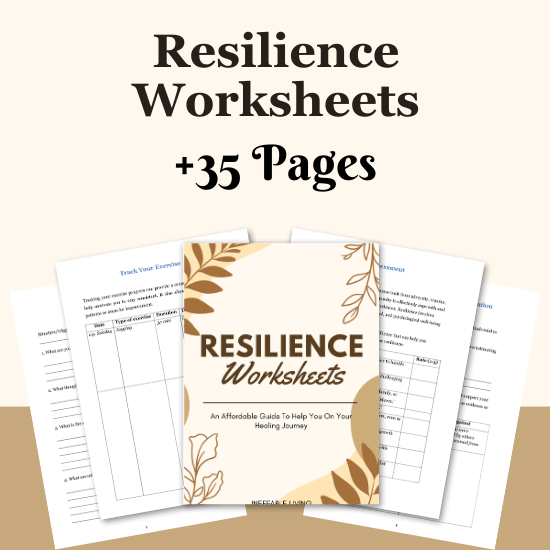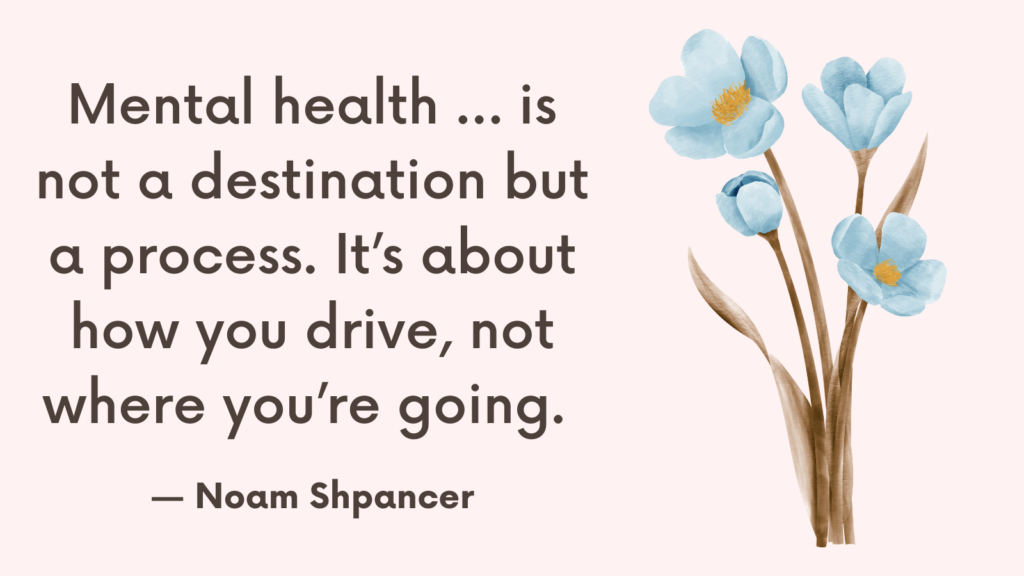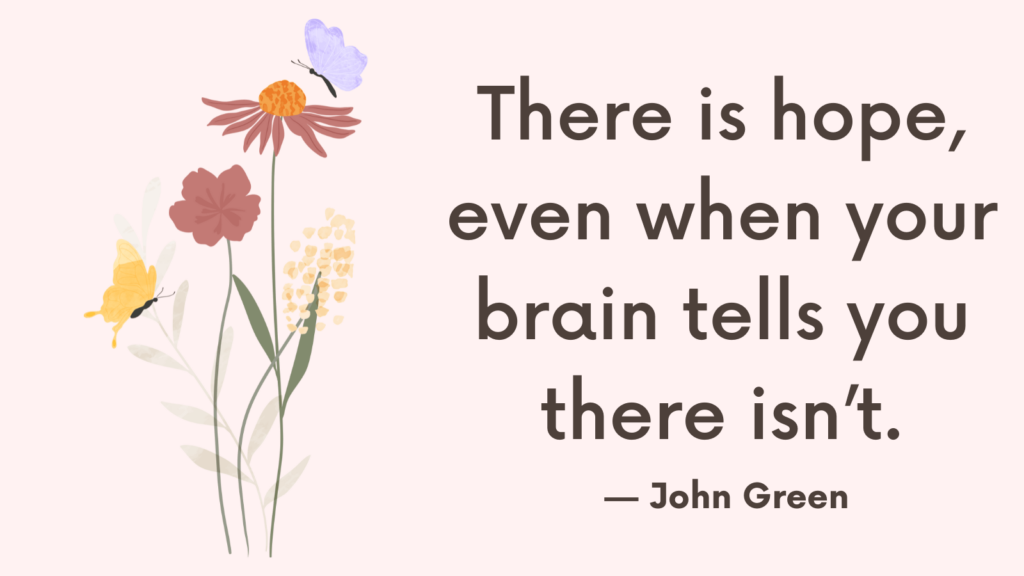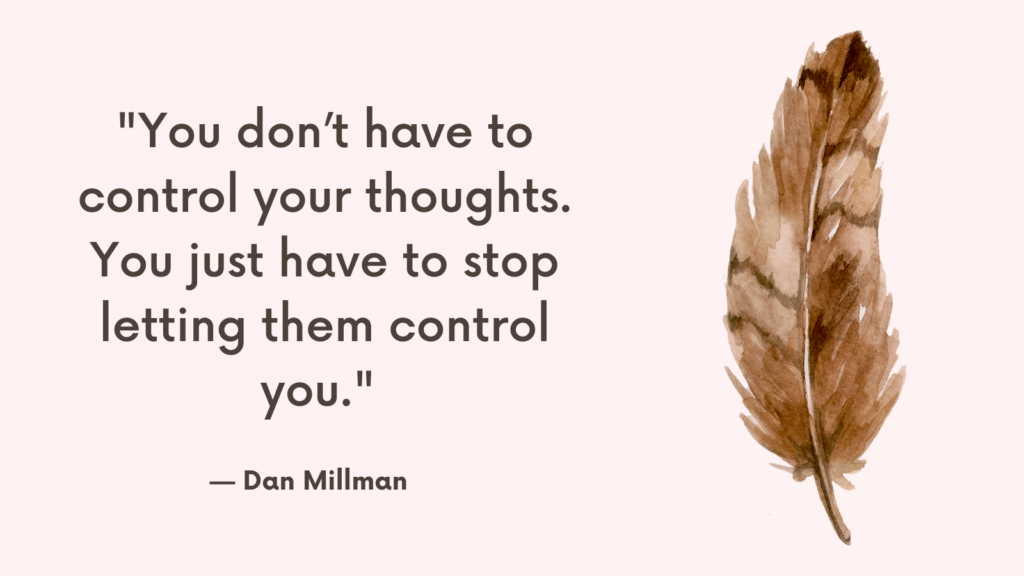Mental health is just as important as physical health, yet it’s easy to overlook in the hustle and bustle of daily life.
Regular mental health check-ins can help you stay aware of your emotional well-being, identify early signs of stress or burnout, and take proactive steps to maintain balance.
This quick guide provides a simple framework for conducting a mental health check-in anytime, anywhere.
Signs You Might Need a Mental Health Check-In
1. You Feel Constantly Exhausted, Even After Rest
Chronic tiredness that sleep doesn’t fix may signal emotional burnout, stress, or depression, not just physical fatigue.
2. Your Mood Swings Feel Intense or Unpredictable
If you’re experiencing rapid shifts between sadness, anger, anxiety, or numbness, it’s worth exploring what’s happening beneath the surface.
3. You’re Withdrawing From Social Connection
Avoiding friends, family, or activities you used to enjoy may signal emotional overload, loneliness, or worsening mental health.
4. You Struggle to Concentrate or Stay Focused
If you’re having difficulty focusing on tasks, conversations, or decisions, your brain might be overwhelmed by unprocessed stress or anxiety.
5. You’re Relying More on Coping Mechanisms
Turning increasingly to alcohol, food, social media, or distractions to numb or escape can indicate you’re avoiding deeper emotional pain.
6. You Feel Emotionally Numb or Disconnected
Feeling flat, detached, or unable to feel joy or sadness can be just as much a mental health flag as overwhelming emotions.
7. You’re Experiencing Physical Symptoms Without Clear Cause
Headaches, stomach issues, muscle tension, or unexplained aches can be physical manifestations of unaddressed emotional stress.
8. You’re Having Trouble Sleeping or Sleeping Too Much
Significant changes in your sleep patterns — difficulty falling asleep, staying asleep, or oversleeping — often reflect underlying emotional strain.
9. You Feel Overwhelmed by Everyday Tasks
Simple daily responsibilities start to feel impossible, leaving you stuck in procrastination, guilt, or shame.
10. You’re Having Thoughts That Worry or Frighten You
If you’re experiencing intrusive, self-critical, or hopeless thoughts — or thinking about harming yourself — it’s vital to seek professional help immediately.
Quick Mental Health Check-In Guide
1. Pause and Breathe
Find a quiet space where you can be alone for a few minutes.
Close your eyes and take three slow, deep breaths. Focus on the sensation of the air entering and leaving your lungs.
2. Assess Your Emotions
Ask yourself, “How am I feeling right now?” Try to identify specific emotions, whether it’s happiness, sadness, anger, anxiety, or something else.
Rate the intensity of your emotions on a scale from 1 to 10.
Related: Top 21 Emotional Writing Prompts To Process Emotions
3. Evaluate Your Thoughts
What’s on Your Mind? Consider what thoughts are occupying your mind. Are they positive, negative, or neutral?
Pay attention to your inner dialogue. Are you being kind to yourself, or are you engaging in negative self-talk?
4. Check Your Physical State
Do a quick scan of your body from head to toe. Notice any areas of tension, discomfort, or fatigue.
Assess your energy levels. Are you feeling energized, tired, or somewhere in between?
5. Identify Stressors
What’s Causing Stress? Reflect on any stressors that might be affecting your mental health, such as work, relationships, or personal challenges.
Identify any immediate concerns or worries that are weighing on you.
Related: Best 35 Journal Prompts for Releasing Difficult Emotions
6. Consider Your Coping Mechanisms
How Are You Coping? Think about how you’ve been coping with stress or difficult emotions recently. Are your strategies healthy and effective?
Consider if there’s anything you need to change in your coping strategies to better support your mental health.
7. Plan Your Next Steps
Identify one small self-care activity you can do right now to improve your well-being, such as taking a walk, calling a friend, or practicing mindfulness.
Consider if there’s a need to seek additional support, such as talking to a therapist, adjusting your routine, or setting boundaries.
Related: Dysregulated Nervous System: Top 9 Signs & How to Heal

Simple Self-Check Questions to Ask Yourself
How am I feeling right now, emotionally and physically?
What is one thing I can do today to improve my mood?
What am I grateful for at this moment?
What is my biggest priority today?
Am I giving myself the care and attention I deserve?
Have I taken a break or relaxed today?
Is there something I need to let go of to feel more at peace?
What is one thing I can do to nurture my body and mind?
Am I living in alignment with my values right now?
What do I need to release or change to move forward?
How to Recognize When You Need Extra Support
We all face hard days — but sometimes, the weight you’re carrying becomes too much to handle alone. Recognizing when you need extra support is an act of strength, not weakness. It’s the first step toward getting the care, connection, or professional help that can guide you back to steadiness.
1. You Feel Overwhelmed Most of the Time
When daily tasks, emotions, or decisions feel constantly heavy or unmanageable, it’s a sign you might need outside support to help lighten the load.
2. Your Usual Coping Tools Aren’t Working
If things that normally help — like rest, exercise, hobbies, or talking to friends — no longer bring relief, it may be time to seek deeper or specialized help.
3. You’re Struggling to Function in Daily Life
When basic tasks like getting out of bed, going to work, or caring for yourself feel nearly impossible, you’re not just “lazy” — you may need meaningful support.
4. You Feel Increasingly Isolated or Disconnected
If you’re pulling away from friends, family, or activities you once enjoyed, it can be a sign that your emotional health is struggling and needs attention.
5. Your Physical Health Is Suffering
Unexplained headaches, digestive issues, sleep problems, or body pain can be physical signs of emotional distress that’s asking for help.
6. You’re Stuck in Cycles of Negative Thinking
Persistent self-criticism, hopelessness, or feeling “stuck” in your thoughts can trap you in isolation. Support can help break the cycle.
7. You’re Engaging in Harmful Coping Behaviors
If you’re turning to excessive alcohol, drugs, self-harm, or risky behaviors to cope, it’s crucial to reach out for help before things escalate further.
8. Loved Ones Have Expressed Concern
When people who care about you start noticing and gently expressing concern, it’s worth pausing to consider whether you need more support.
9. You Feel Hopeless About the Future
If you’re feeling like nothing will get better or like giving up, this is a clear signal to reach out — to a trusted person, counselor, or helpline — right away.
10. You’re Unsure But Feel Something Is Off
You don’t have to wait for a crisis. Even if you can’t name exactly what’s wrong, feeling that “something’s off” is reason enough to seek a check-in or extra care.
Setting Up a Regular Mental Health Routine
A regular mental health routine is like emotional hygiene — it helps you stay balanced, resilient, and better prepared to handle life’s ups and downs. You don’t need complicated systems or hours of time; what matters is creating consistent practices that support your emotional, physical, and mental well-being.
1. Start With Small, Sustainable Practices
Focus on simple, doable actions you can stick with daily — like five minutes of journaling, a short walk, or a quiet moment of deep breathing.
2. Schedule Check-Ins With Yourself
Set aside regular times (daily or weekly) to reflect on how you’re feeling emotionally, physically, and mentally, so you can catch small issues before they grow.
3. Prioritize Sleep and Rest
Consistent, good-quality sleep is the foundation of mental health. Build a calming bedtime routine and aim for regular sleep and wake times.
4. Move Your Body Regularly
Physical activity — even gentle movement like stretching, yoga, or walking — releases stress and improves mood. Find movement that feels good to you.
5. Nourish Yourself With Balanced Meals
Eating regularly and mindfully helps stabilize your mood and energy levels. Include a variety of nourishing foods that support your body and brain.
6. Stay Connected to Supportive People
Healthy relationships are key to mental well-being. Make time to check in with friends, family, or support networks that uplift you.
7. Practice Stress-Reduction Techniques
Incorporate small moments of mindfulness, meditation, deep breathing, or grounding exercises to help reset your nervous system when stress builds.
8. Limit Overwhelm and Set Boundaries
Pay attention to your limits and practice saying no or stepping back from commitments that drain you. Protect your time and energy intentionally.
9. Engage in Activities That Bring Joy or Meaning
Make space for hobbies, creative outlets, or volunteer work that light you up and remind you of your strengths and passions.
10. Know When to Reach Out for Extra Help
Build a routine that includes recognizing when you’re struggling and seeking support — whether from a counselor, mentor, or trusted friend — before things escalate.
Conclusion
By making mental health check-ins a regular part of your routine, you can maintain greater awareness of your emotional state and take proactive steps to support your well-being.
These check-ins don’t have to be lengthy or complicated—just a few minutes can make a significant difference.



